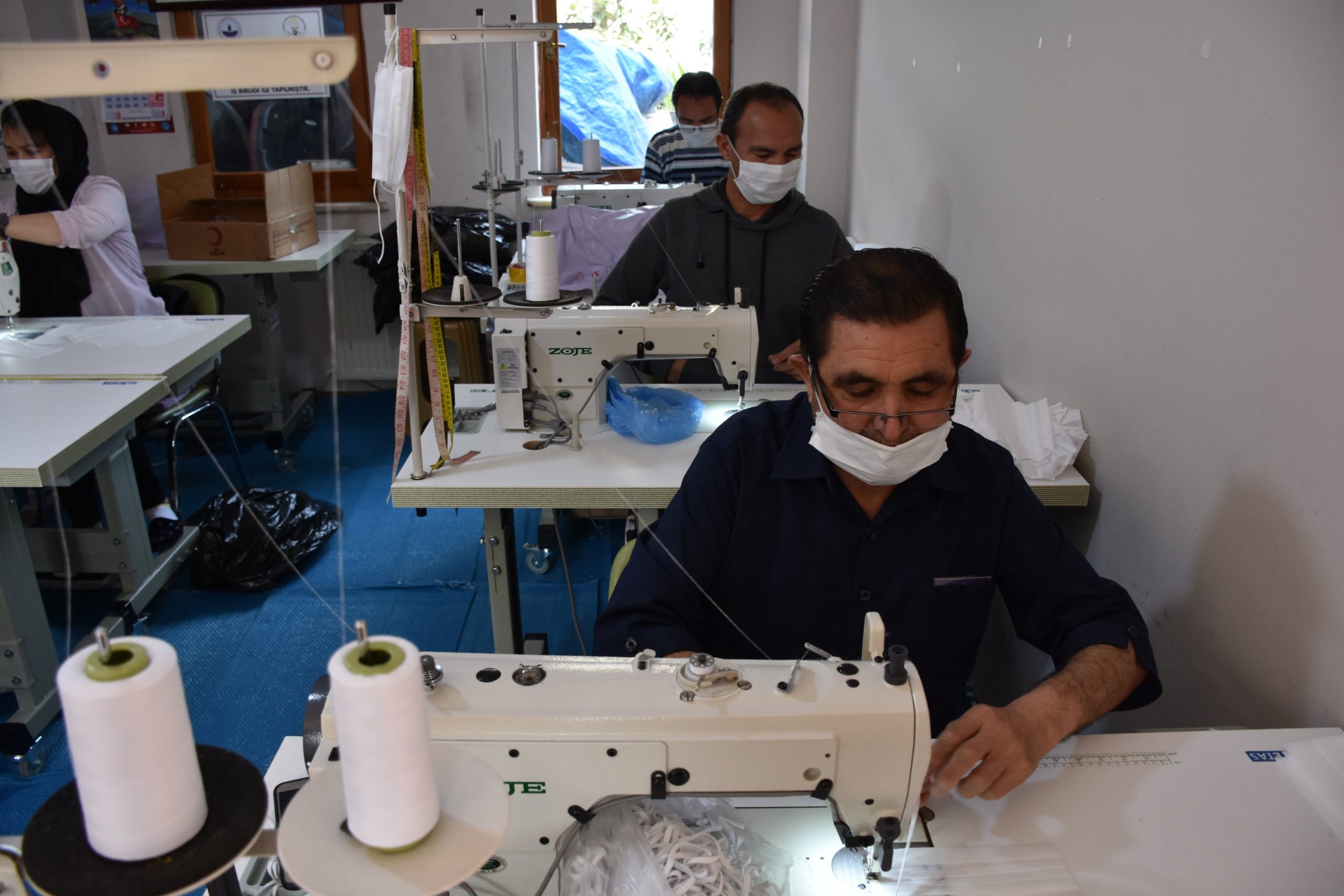A group of Afghan migrants in northern Turkey stepped up to the plate to help Turkey in its fight against the COVID-19 pandemic. An association, set up by ethnic Afghan Hazaras settled in Turkey years ago, now runs a mask workshop. Migrants, who hail Turkey’s warm embrace, say they pay off “their debt” to the country by sewing masks to be used in combatting the outbreak.
In the small workshop, members of the Culture and Solidarity Association of Afghan Hazaras in the northern Turkish city of Trabzon work behind sewing machines to sew medical masks. Members, who were trained in a local vocational learning center, make 5,000 masks a day, working six days a week.
The association’s president Muhammet Gül told Anadolu Agency (AA) on Wednesday that their organization was established in 2012 and now has branches in 16 provinces where migrants live.
“Turkey is in a much better place in the pandemic compared with other countries thanks to early measures by the state. We wanted to help the country further,” he says. Since the early days of the pandemic, the association members have been sewing masks. Currently, eight migrants work at the workshop. “We started with 1,000 masks a day and managed to increase it to 5,000. We handed them public agencies. We gave 10,500 masks to the Trabzon Governorate and thousands of others to municipalities. So far, we produced 100,000 masks and have 20,000 more ready for delivery,” he said. Gül noted that other migrants were also producing soap to fight the pandemic. “Turkey has been a big brother for us and we are ready to do anything for the country,” he said.
Musa Hüseyni, one of the workers at the workshop, said they supported Turkey’s fight against the pandemic and sought to help authorities by sewing masks.
Thousands of volunteers all across the country have been working day and night to produce masks and protective gear for health care workers embattled by the coronavirus cases since the outbreak made its way into Turkey in March.
Turkey initially delivered free masks to each citizen and authorities assured that there won’t be any shortages, both for citizens and for health care workers. Later, it allowed for the sale of masks for a fixed, low price. Since the outbreak grew, vocational schools, vocational learning centers of local administrations and private companies started producing masks. Skilled people of all ages volunteer to work around the clock in sewing workshops. Some vocational schools and individuals who own 3D printers are also volunteering to produce face shields.
Last Updated on Jun 10, 2020 2:58 pm










Discussion about this post